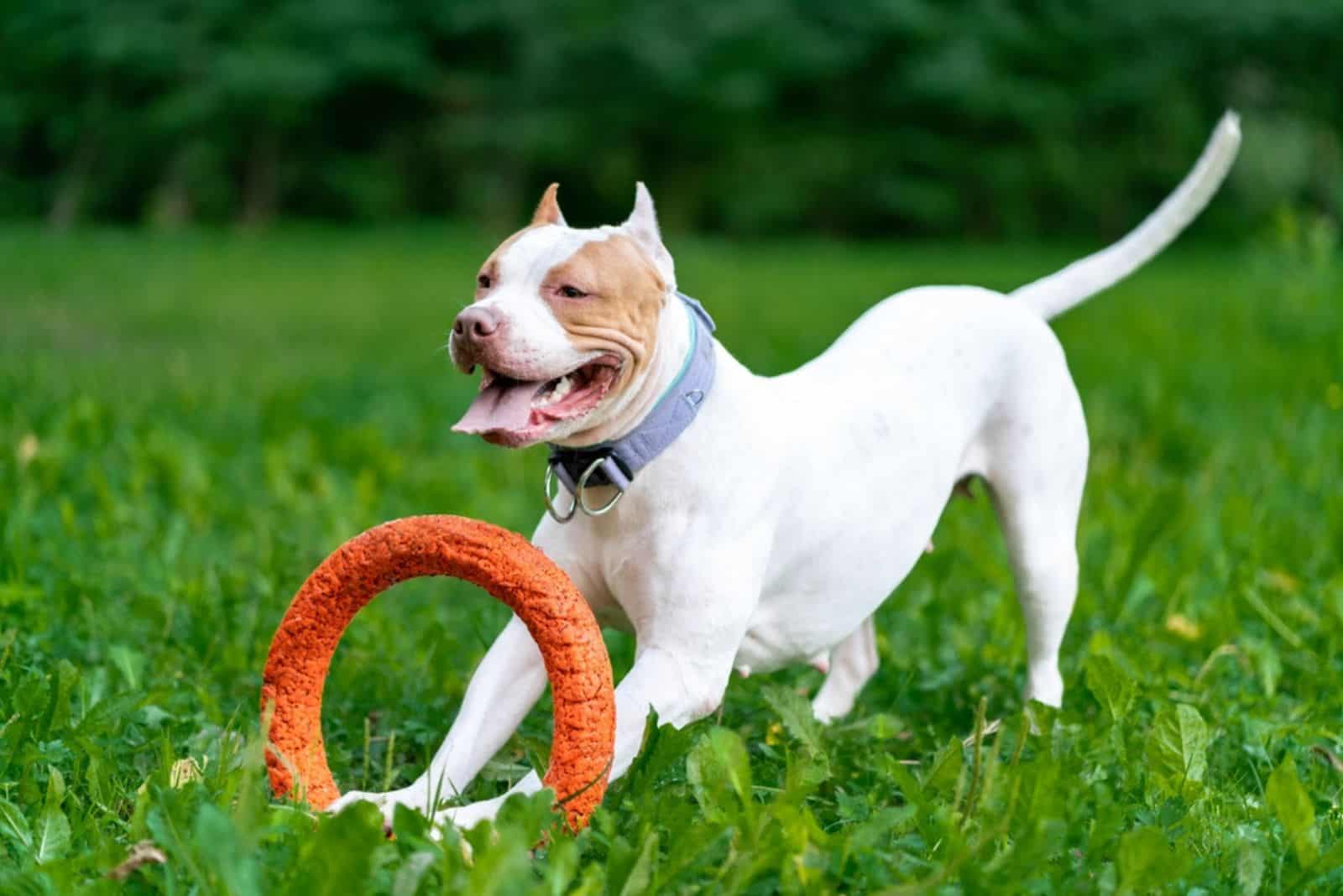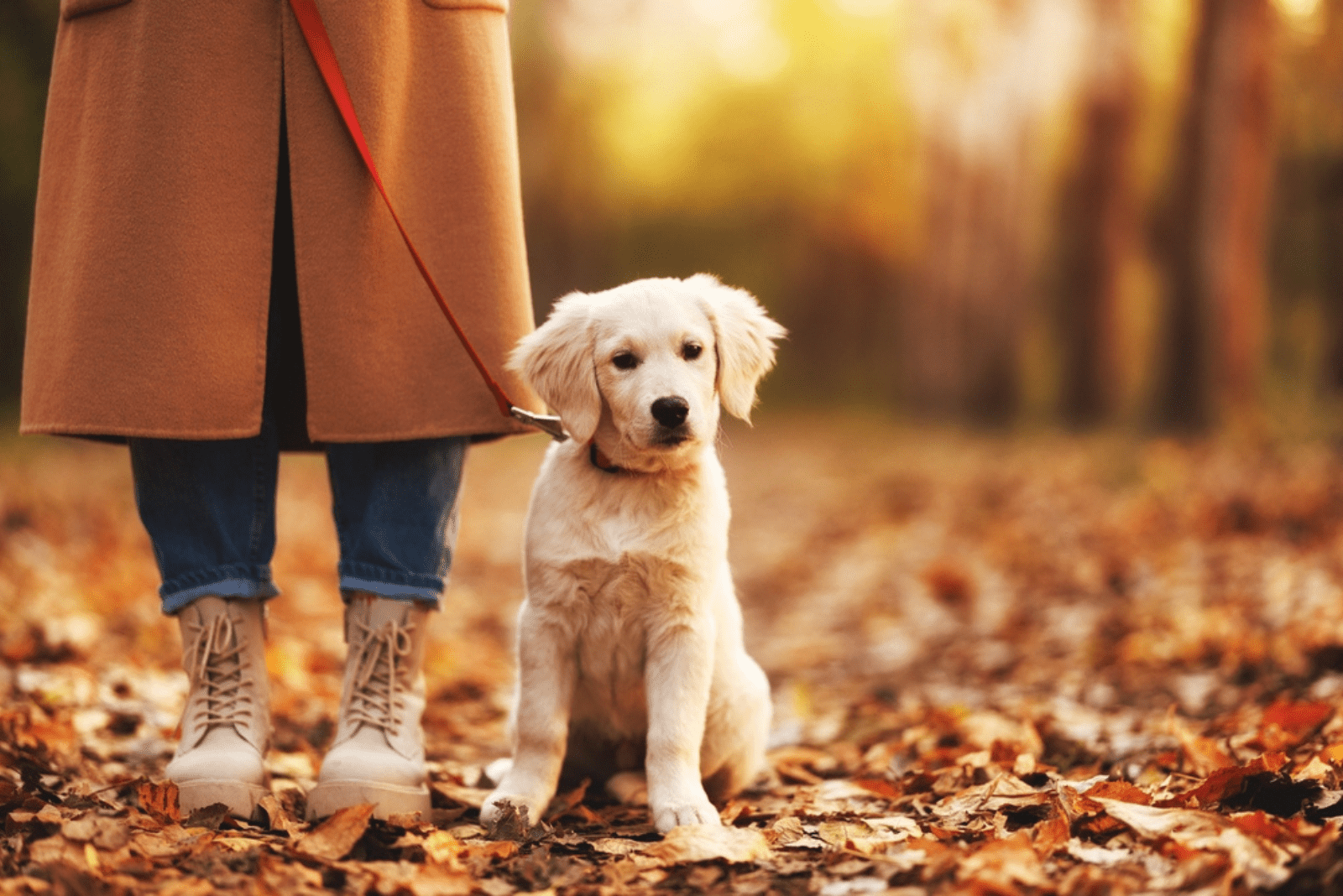Are you thinking about purchasing your new pup from a pet shop? Think again! While pet shops look cute and offer adorable animals, there are so many dark secrets that many paw lovers may not be aware of.
Should you buy a Pitbull from pet shops is another complex question due to the breed’s notorious reputation and breed-specific legislation across the States.
Let’s clear all of this up!
We are here to let you in on some of the most important things to consider when deciding to buy a Pittie from a store.
Should You Buy Pitbulls From Pet Shops? 12 Important Facts
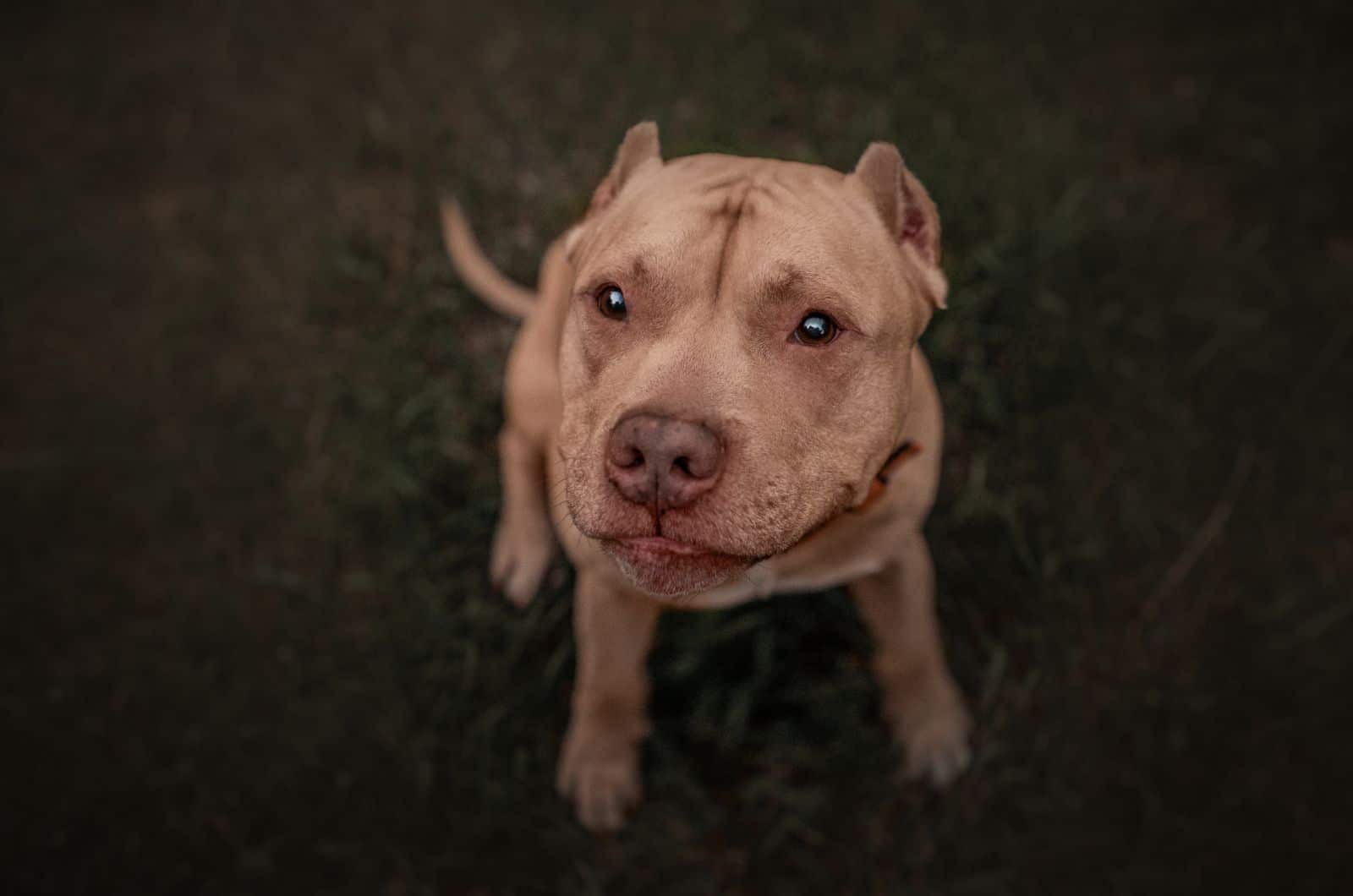
If you are not sure whether you should buy a Pitbull from a pet shop, here are the important facts you need to know before deciding.
1. Real Dog-Lovin’ Breeders Don’t Sell Their Pitbulls In Pet Shops
Reputable Pitbull breeders care about their fur babies like they’re their own flesh and blood, and they want to make sure they go to the best homes possible.
Instead of sending their Pitties to pet shops, they do things a little differently. They’ll often meet with potential pup parents, show them around their breeding facilities, and get to know them a little better.
This way, they can make sure their pups are going to a loving home where they’ll be treated like royalty.
This is not the case with pet shops, as sellers do not evaluate potential owners which is why a lot of pet shop Pits end up in shelters or rescues.
2. Puppy Origin? Puppy Mills
Pet shops? More like puppy-mills-central! Unfortunately, many pet shops get their Pit Bull pups from these not-so-puppy-friendly places.
Puppy mills are all about mass-producing pups for a quick profit, with little regard for their health or happiness.
These poor canines are often kept in cramped and dirty conditions, and are barely given enough food and water to survive. And when they’re not breeding machines, they’re forgotten and left to suffer.
And that’s how pet shops get their pups – by buying them from puppy mills. And since Pitties are one of the most popular breeds around, they’re often part of the puppy mill mix.
This is a big problem for these dogs that are often categorized as an aggressive breed, as well as for the people who love ’em.
Pits from puppy mills are often sick, malnourished, and have behavioral problems that can last a lifetime. And these issues can lead to even bigger problems down the road, like abandonment or even euthanasia.
3. Ain’t No Rescuing Goin’ On There!
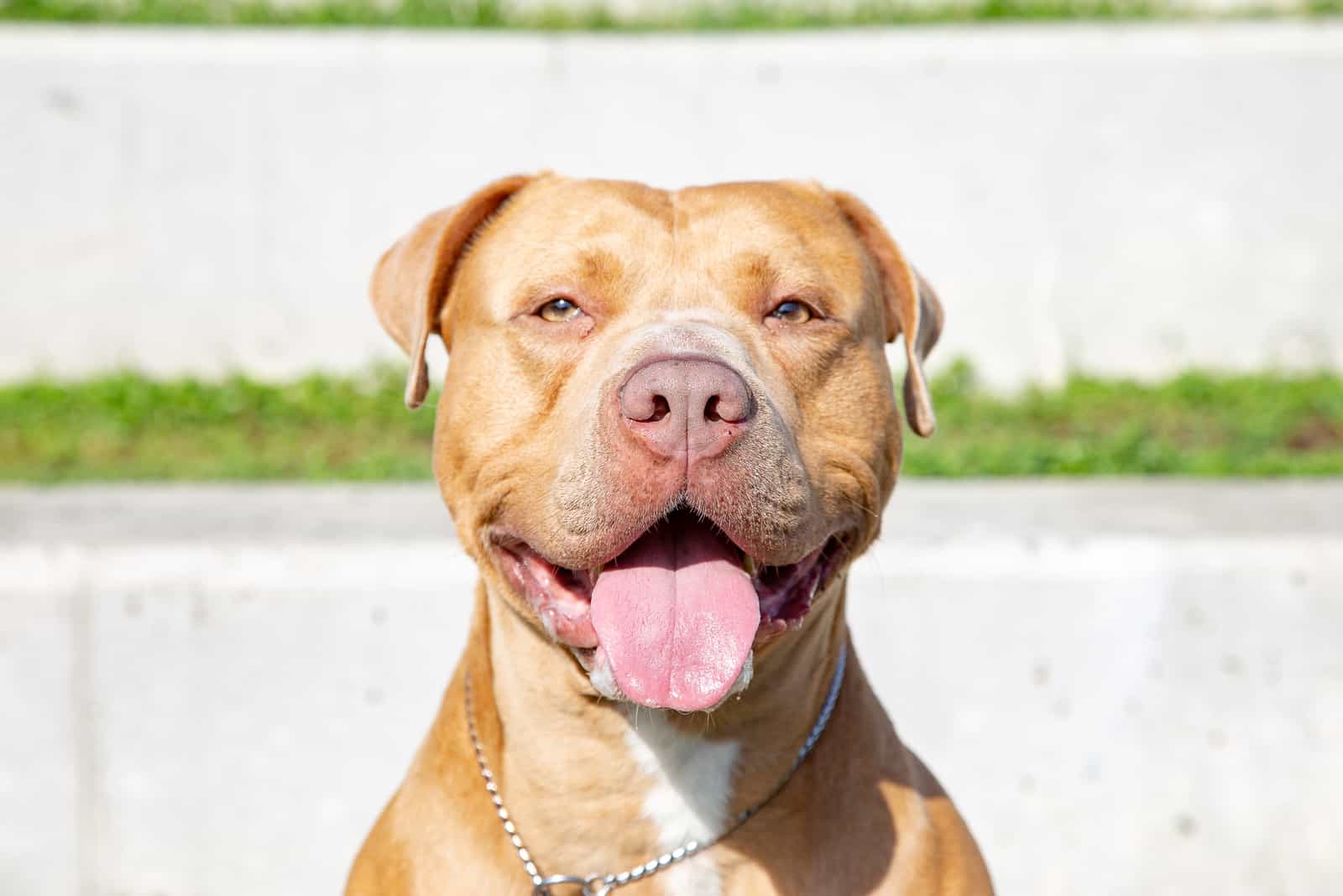
When you buy a Pit Bull puppy from a pet shop, you’re not rescuing a dog in need – you’re simply buying from a shady source. And that source is often a puppy mill.
Not only are you not rescuing a pup, but you’re also indirectly supporting the cruel and inhumane practices of puppy mills.
And, we all know that the majority of dogs in shelters are indeed Pitties.
4. So Many Shelter Pitbulls Need Homes
The fact is, these misunderstood pooches make up a large portion of the dogs in shelters, and they often have a harder time finding homes than other breeds.
This could be due to misconceptions and stereotypes about Pitbulls, or it could simply be because there are just so many of ’em out there. Regardless of the reason, it’s a problem that needs our attention.
By adopting a Pit from a shelter, you’re not only giving him a second chance, but you’re also helping to reduce the number of dogs in shelters.
5. Sneaky Sales Tricks
Pet shops may have cute decor and eye-catching displays, but don’t let that fool ya – they often use sneaky sales tricks to sell sick puppies and hide their real health problems.
They might use quick fixes and grooming techniques to make the pups look presentable, but they’re not fixing the underlying issues.
And let’s not forget about those breed misrepresentations – you might think you’re getting a full-blooded Pittie, but you could end up with a Shih Tzu Pitbull mix instead!
But here’s the real kicker – pet shops often pressure customers into impulsive purchases, making it even harder for them to resist those cute little faces.
So, before you fall for their tricks, do your research and adopt from a responsible breeder or shelter instead.
6. Payment Plans? More Like Payment Pains!
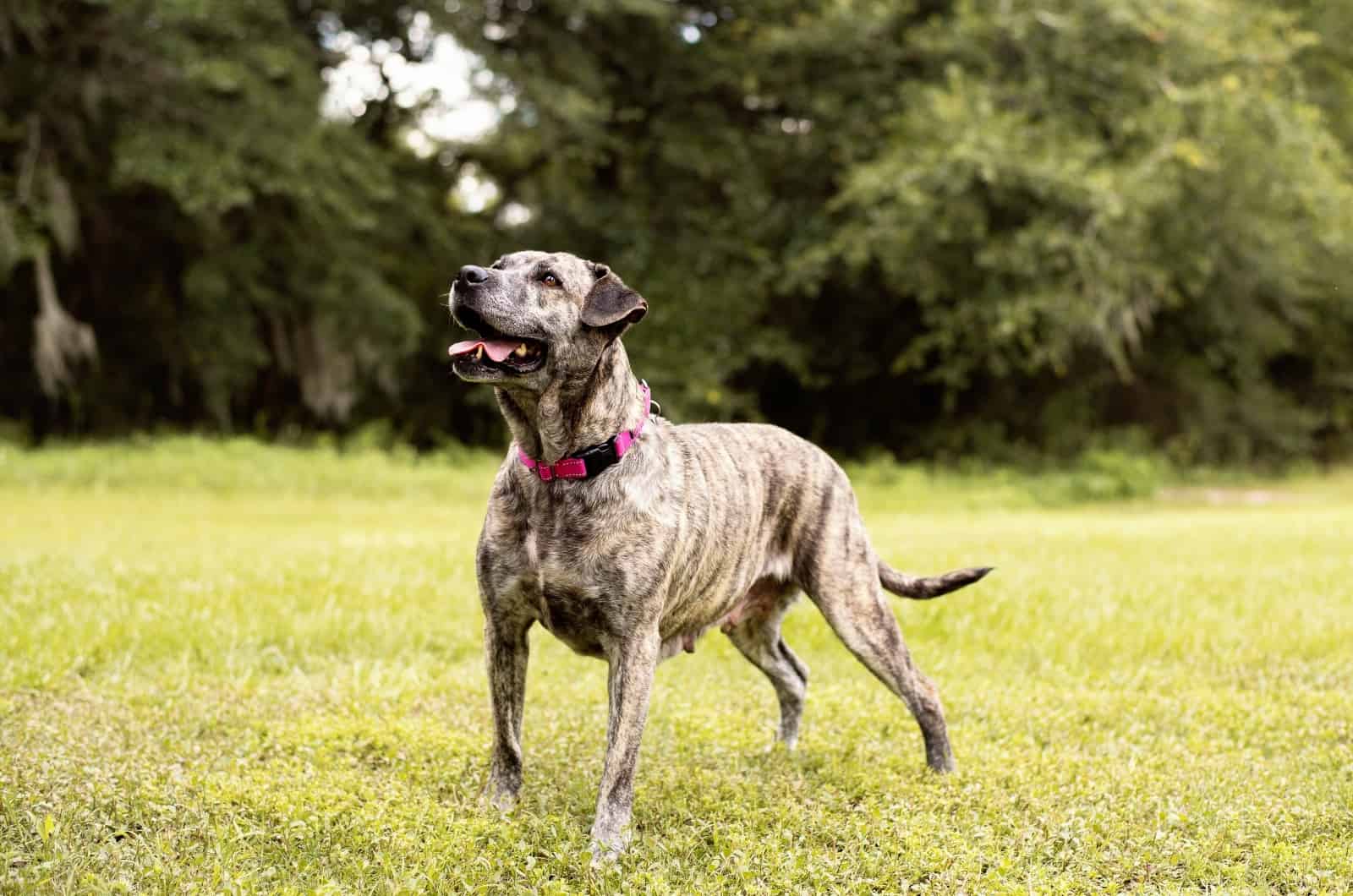
Many pet shops offer payment plans as a way to lure customers into buying expensive Pitbull puppies. However, these payment plans often come with hidden fees and high interest rates.
The Pit puppy’s health is also often neglected during the payment plan period as pet shops prioritize making money over providing proper care. This can lead to long-term health problems for the puppy and unexpected financial burden for the buyer.
It’s important to thoroughly research and compare the costs and conditions of pet shop payment plans before making a decision, as they may not always be the best option for both the buyer and the Pittie pup.
7. Pet Shop Pitbulls = Big Bucks And Big Problems
Even though Pitbulls are not among the most expensive dog breeds, pet shops have a habit of slapping on a hefty price tag for these pups – and that’s not even taking into account all the health and behavioral issues they might come with.
On the other hand, adopting from reputable breeders, dog rescues, or shelters can often be much more cost-effective and ensure that you are getting a healthy and well-behaved pet.
For those on a tight budget, considering fostering or volunteering at a local animal shelter is another option to find a furry friend for free!
8. Trouble In Behavior And Psyche
Pet shop environments can have a negative impact on both male and female Pitbull puppy’s behavior and psyche.
The stressful,overcrowded, and often unsanitary conditions can cause fear, anxiety, and aggressive behavior.
9. Genetic Health Checks? Not For Pet Shop Pit Bulls

So far we know that the majority of pet shops often source their puppies from puppy mills, which prioritize quantity over quality and do not conduct thorough genetic health checks. As a result, pet shop Pits may have underlying health problems that are not immediately noticeable.
The most common health problems store-bought Pitties face are ear infections, skin conditions, and external parasites such as mites and fleas.
This can lead to unexpected and costly veterinary bills for future owners and a decreased quality of life, which results in a shorter lifespan of Pit Bull puppies.
In addition, genetic health issues can be passed down to future generations, perpetuating the cycle of neglect and suffering in the breeding industry.
To ensure that you are getting a healthy and genetically sound pet, consider adopting from a reputable breeder or rescue that conducts thorough health screenings and genetic testing.
10. Want To Meet The Pit Bull’s Parents? Not Happening At The Pet Shop
Pet shops usually do not allow customers to meet the parents of the puppies they are selling.
This is because they don’t even know the parents as puppies are often sourced from puppy mills, where the breeding dogs are kept in inhumane conditions and treated as breeding machines rather than family pets.
You know what they say, like father, like son. Meeting the Pit Bull’s parents can provide valuable insight into a puppy’s temperament, health, and behavior.
It can also give you an idea of what your Pittie may look like when he grows up and what health issues may be present in their lineage.
On the other hand, reputable breeders or certain rescues usually allow you to meet the parents and provide health and genetic information about the puppies.
11. Social Butterfly? Not Your Pet Shop Pittie
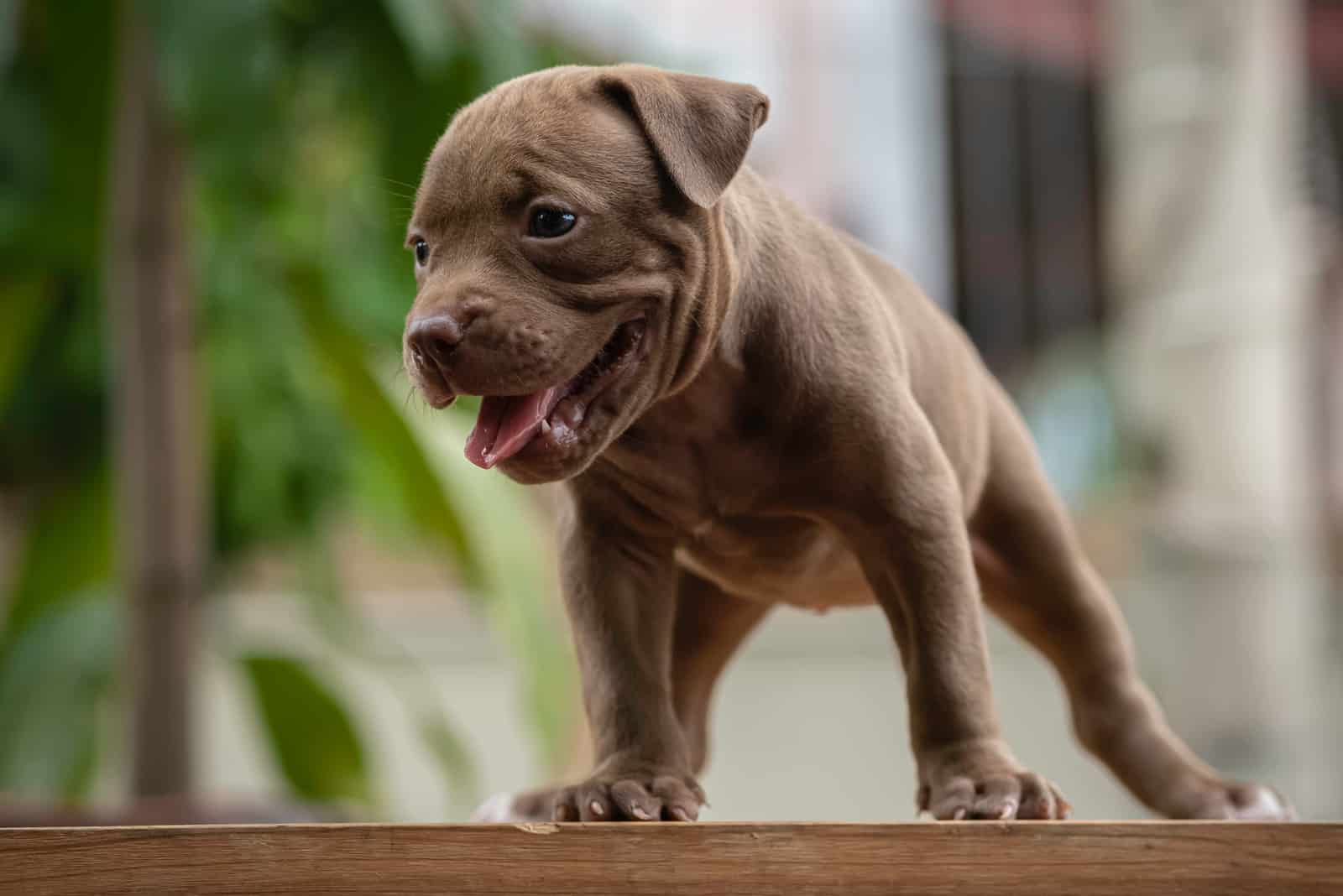
This one is so obvious! Pet shops often fail to provide adequate socialization for their Pit Bull puppies, which can lead to behavior problems and a lack of confidence.
The crowded and often stressful conditions of pet shops can cause behavioral issues accompanied by fear, making it difficult for them to develop social skills and interact well with other dogs and people.
In contrast, reputable breeders and rescues usually provide early socialization and training for their Pitties to help them become confident, well-behaved, and friendly pets.
12. Potty Training? Good Luck With That Pet Store Pit
Similar to socialization, pet shops often struggle with potty training their puppies due to the stressful and unsanitary conditions they are kept in.
The lack of attention can make it difficult for puppies to learn and retain good bathroom habits. Some pups may reach six months of age and still not know how to go potty.
On the other hand, reputable breeders usually provide a structured and clean environment that helps puppies learn good potty training habits from an early age.
Read Next: How To Train A Pitbull Puppy Not To Bite — 11 Great Tips
In Conclusion

After reading about all the disadvantages of purchasing a puppy from a pet shop, what do you think? Should you buy Pitbulls from pet shops?
We believe that, no matter if it is a dog, cat, hamster, or a turtle, aspiring owners should choose to adopt, rather than to shop. Besides saving some money, the feeling after knowing you saved a life is priceless!










